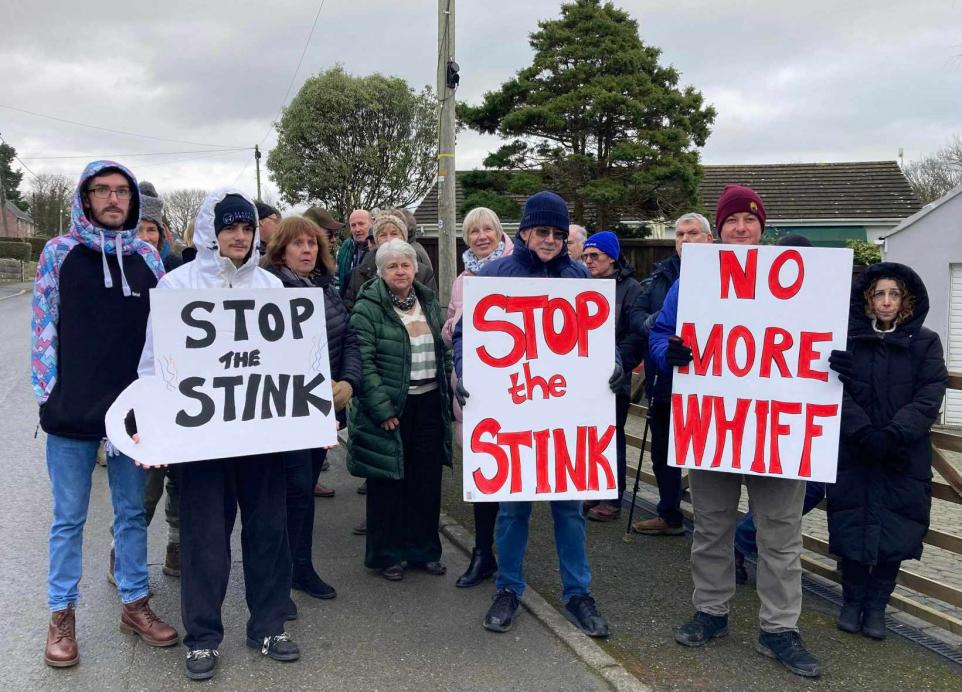Politics
Poverty and complex needs
 THE JOSEPH ROWNTREE FOUNDATION is working with the Bevan Foundation and others on a major programme to identify ‘what works’ to reduce poverty and to develop an anti-poverty strategy for Wales and other UK nations based on that evidence.
THE JOSEPH ROWNTREE FOUNDATION is working with the Bevan Foundation and others on a major programme to identify ‘what works’ to reduce poverty and to develop an anti-poverty strategy for Wales and other UK nations based on that evidence.
The term ‘complex needs’ refers to the ways in which poverty is complicated by some people’s additional requirements for support with, for example, substance misuse, or the trauma associated with experiences of violence, abuse or neglect. It also includes people whose additional disadvantages are associated with legal status (for example, immigration status restricting employment or welfare rights).
It is very important to understand that poverty amongst these groups of people and their specific needs are two separate things.
Work undertaken to date suggests it is unlikely that poverty amongst people with complex needs will be reduced in the short term. Instead, the focus should be on reducing the additional disadvantages they face so that they are closer to the same position as other income groups, enabling them to access mainstream services and support.
Adults with complex needs
Some key findings have emerged so far:
- Adults often have overlapping complex needs (e.g. homelessness, substance misuse and a history of offending) which should be addressed in a holistic way rather than separately. This suggests that the Welsh Government should bring together these functions, currently located in three different portfolios, under a single Minister and be addressed in a single, ‘complex needs’ strategy.
- Approaches based on people’s assets are more effective than those based on their deficits – so approaches such as Housing First or recovery models of substance misuse are typically most effective. This suggests that the Welsh Government may wish to review and refresh its approaches.
- Community-based support is typically more effective than institutionally-based services. This suggests that the Welsh Government may wish to review its approaches and focus on community-based interventions.
- For a minority of people, intensive, personalised and open-ended support is required.
In the longer term, the close association between persistent family poverty and many complex needs such as substance misuse, living in a disadvantaged area and offending needs to be broken. The most effective ‘primary’ prevention measure is to reduce poverty itself, especially amongst unemployed young men living in disadvantaged areas. This suggests that the Welsh Government should target some future anti-poverty actions on young unemployed men.
Refugees and Asylum-seekers
Emerging proposals to reduce poverty amongst refugees and asylum-seekers include non-devolved issues such as changes to the asylum process and benefits eligibility.
Areas of relevance to the Welsh Government include:
- Improved access to the labour market, so that refugees and asylum seekers can reduce the risk of poverty by working.
- Improved access to housing, particularly on transition from Home Office accommodation to the private rented sector.
- Access to ESOL (English for Speakers of Other Languages) provision.
- Better access to health care services especially for pregnant women and access to rehabilitation and psychological support.
Work remains ongoing on effective approaches for families with complex needs and domestic violence.
News
Return your postal vote and make your voice count

POSTAL votes for the upcoming Police and Crime Commissioner election can be returned as soon as received.
Those registered should have received their postal vote information and now is the time to fill it in and pop it back in the post.
You must complete the postal voting statement and your ballot paper for your vote to be counted.
Your postal vote pack includes full instructions on how to complete the form and voting ballot.
There will be two envelopes – complete the postal voting statement and include your ballot paper in envelope A before placing that in envelope B, ensuring the freepost return address is visible.
This helpful YouTube video shows how to complete the postal vote documents.
If you need help with your postal vote form you can also call 01437 775844
There are some changes to postal vote submission and you will need to complete a form with our staff if you decide to hand your postal vote in to a polling station or County Hall reception.
News
Transport Secretary champions 20mph speed limit changes in Wales

IN a recent address to the Senedd, Cabinet Secretary Ken Skates unveiled a comprehensive three-phase plan aimed at refining the implementation of 20mph speed limits across Wales. This initiative is part of a broader effort to enhance road safety in residential areas, particularly near schools, hospitals, and other sensitive sites.
Skates emphasised the Welsh Government’s commitment to incorporating the views of Welsh citizens directly into the decision-making process. “We’ve started by listening,” Skates stated, underscoring that the voice of the community is pivotal to the transport policy development. The approach includes a significant public engagement campaign set to run until July, where feedback will be sought from a diverse group of stakeholders including bus drivers, emergency service personnel, businesses, and local council representatives.
The Welsh Government plans to work in close collaboration with local authorities to assess and prepare for the proposed changes. This preparation will involve revising guidelines to determine which local roads might be exempt from the new speed limit, with an updated version expected to be published in July. Following this, councils will initiate detailed consultations from September to ensure community needs are fully addressed.
The phases of the plan as outlined by Skates include:
- A robust national listening programme to gather input on road safety concerns from across the community.
- A partnership with local authorities to prepare for the changes, encouraging public participation in identifying areas where the 20mph limit should be applied.
- Implementation of the changes on the ground, with local authorities adjusting speed limits in accordance with new guidelines and community feedback.
The Cabinet Secretary reiterated the primary aim of the policy: “The principal objective is to save lives and reduce casualties on our roads. We continue to believe 20mph is the right speed limit in key community areas, and what I am doing now is listening to what people want for the roads in their communities, and pressing ahead with refining the policy.”
Skates also made it clear that the final decision on the extent of change would not solely rest with the Welsh Government but would significantly depend on the input from local authorities and the public. Information on how residents can participate in this consultation process will be provided on the Welsh Government’s website, ensuring that all community voices can contribute to shaping the future of their local transport policies.
Responding to a press release from Labour’s Cabinet Secretary for Transport, Natasha Asghar MS, Shadow Transport Minister, said: “Whilst I am waiting with bated breath to hear the Cabinet Secretary outline his transport priorities, I fear all this talk of changes to the government’s flawed 20mph scheme is just another example of Labour ministers paying lip service.
“Ministers might be making all of the right noises on 20mph, but if the Cabinet Secretary is serious about listening to the people of Wales, then he will accept that this law was a terrible mistake and repeal it.
“Only the Welsh Conservatives would scrap this disastrous law and get Wales moving.”
News
NRW issues new enforcement notice at Withyhedge

NATURAL Resources Wales (NRW) has taken further enforcement action at Withyhedge Landfill in Pembrokeshire, setting out the urgent steps its operators must take to address the site’s ongoing odour and landfill gas emission issues.
NRW has issued site operators Resources Management UK Ltd (RML) with a further Regulation 36 Enforcement Notice, which requires the operator to deliver a series of actions by specified deadlines – the first due to be achieved by April 21.
The actions include implementing measures relating to gas management infrastructure, further capping areas of the site, and improving interim cover arrangements as the work progresses.
Each step outlined in the Notice must be completed by May 14.
However, the Notice stipulates that most works must be completed before May 8.
The measures are intended to address the odour issues experienced by communities surrounding the site.
Although actions set out in the Section 36 Notice issued in February to prepare and cap a waste cell and install gas infrastructure to contain and collect landfill gases appear to have been completed, the site operator has identified further areas of the site which could be causing problems.
RML submitted their plans to resolve these issues last week.
The proposed solutions informed the actions included in a new S36 notice issued last week.
The new enforcement activity requires the operator to deliver the additional steps they need to take.
If the actions outlined in this new Notice are not complied with, NRW will not hesitate to take further action. The Welsh Government agency will consider all the regulatory tools available, including issuing a Section 37 suspension notice.
A Section 37 Notice would end operations at Withyhedge
Huwel Manley, Head of South West Operations, NRW, said: “NRW is taking additional enforcement action to ensure RML Ltd. takes the urgent action they have identified needed to control the odour issues at Withyhedge Landfill.
“We fully understand the growing discontent from the affected communities, and we feel that it is unacceptable for residents and visitors to the area to continue to be affected by these odour and landfill gas emissions.
“We want to reassure everyone that we are committed to ensuring RML Ltd. deliver the actions they have identified and that they work quickly to resolve this issue.
“While the pressing work required by the operator progresses over the coming days and weeks, the site remains under investigation, and we will continue our regulatory presence.
“Nothing is off the table. If the series of actions required in this Notice are not complied with, we will have no hesitation to take further enforcement action, considering every option available to us under the regulations, including suspending the environmental permit if appropriate.”
Will Bramble, Pembrokeshire County Council Chief Executive, said: “We are extremely disappointed that RML, the company managing the Withyhedge landfill site, has not delivered the necessary action to stop the completely unacceptable odour emissions.
“We fully support NRW’s additional enforcement action and continue to work closely with them to correct the situation.
“We also support NRW’s intent to take further action should it fail to meet the May 14 deadline, including considering suspending the permit.
“Geotechnology is monitoring under the direction of the air quality cell and liaising directly with residents affected.
“We will ensure the data is made available to the public at the earliest opportunity.”
The controversy over £200,000 in donations to Vaughan Gething’s Labour leadership campaign by companies linked to Withyhedge and a further substantial personal donation by company director David Neal continues to dog Wales’s new First Minister.
As revelations continue to bubble up from under the cap that Mr Gething has tried placing on them, the smell from Withyhedge has reached Cardiff Bay. It is beginning to stink out the Senedd.
More details of that story are elsewhere in this week’s Herald.
NRW requests that instances of odour from the landfill continue to be reported via this dedicated form: https://bit.ly/reportasmellwithyhedge.
-

 News5 days ago
News5 days agoPolice issue update on the search for Luke, missing from Pembroke Dock
-

 News10 hours ago
News10 hours agoPolice and air ambulances at ‘serious incident’ at West Wales school
-

 Sport6 days ago
Sport6 days agoHerbrandston Clinch Promotion to Division One
-

 News4 days ago
News4 days ago20mph U-turn: Some roads will return to 30mph following public outcry
-

 Community4 days ago
Community4 days agoMiracle pup finds her forever home after heart-wrenching journey
-

 Community2 days ago
Community2 days agoCounty Hall to offer space for community banking
-

 Crime2 days ago
Crime2 days agoBrian Davis: Wanted on suspicion of commercial burglary
-

 News7 days ago
News7 days agoFirst step towards council tax and business rate reform

























